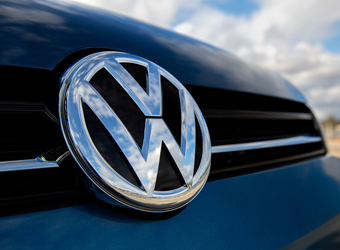Volkswagen is stepping up its shift to electric cars and plans to invest more than 20 billion euros ($24 billion) in zero-emission vehicles by 2030 to challenge pioneer Tesla (TSLA.O) in creating a mass market.
The world’s largest automaker by sales said on Monday it would roll out 80 new electric cars across its multi-brand group by 2025, up from a previous goal of 30, and wanted to offer an electric version of each of its 300 group models by 2030.
The German company had previously said it would spend more than 10 billion euros by 2025 on a move to electric vehicles.
Until it admitted two years ago to cheating on U.S. diesel emissions tests, Volkswagen (VW) had been slow to embrace electric cars and self-driving technology.
But the “dieselgate” scandal has prompted a strategic shift, while major advances in batteries and a global fight against pollution in the wake of VW’s scandal have raised pressure on carmakers to speed up development of zero-emission alternatives.
“A company like Volkswagen must lead, not follow,” Chief Executive Matthias Mueller told reporters on the eve of the Frankfurt auto show as he unveiled the group’s “roadmap E”. “We are setting the scene for the final breakthrough for e-mobility.”
VW’s so-called I.D. model will compete with Tesla’s least expensive car, the new $35,000 base-price Model 3 sedan, for mass-market buyers.
VW’s electric car offensive mirrors pre-Frankfurt show announcements by German rivals.
Daimler (DAIGn.DE) said on Monday its Mercedes-Benz luxury brand planned to offer electric motors for all models by 2022, though cautioned the shift to lower-margin electric cars required extra cost savings.
BMW (BMWG.DE), which launched the i3 electric car in 2013, said on Thursday it was readying its factories to mass produce electric vehicles by 2020 and pledged to have 12 purely battery-powered models on offer by 2025.
Growing restrictions and charges for diesel and gasoline vehicles are spurring the rise of electric cars, although analysts say big investments in charging points and power networks will be needed to serve a mass market.
China, the world’s biggest automotive market, is studying when to stop the production and sale of combustion engine vehicles, echoing moves by Britain and France, which have announced bans for conventional cars from 2040.
To cover the needs of “roadmap E”, VW has started a tendering process for the selection of partners in China, Europe and North America to provide battery cells and related technology worth more than 50 billion euros.
Tesla in January started mass production of lithium-ion battery cells at its own gigafactory in Nevada, which is aiming for annual battery production capacity of 35 gigawatt-hours.
VW said it would require capacity equivalent to at least four gigafactories to power the vastly increased fleet of electric cars.
Mueller told Reuters TV that VW had no need to sell assets to fund the electric car offensive.
“No, not at all,” he said. “Although we have suffered financially in the past two years because of the diesel issue, we are positioned well enough in financial terms to be able to shoulder these investments without problems.”
VW’s electric car program will center on the new MEB modular platform developed by its namesake brand, which will underpin all mass-market electric vehicles from across the group. A Golf-style compact model with about 600 kilometers (373 miles) of driving range is due to be built in 2020.
Source: Reuters
